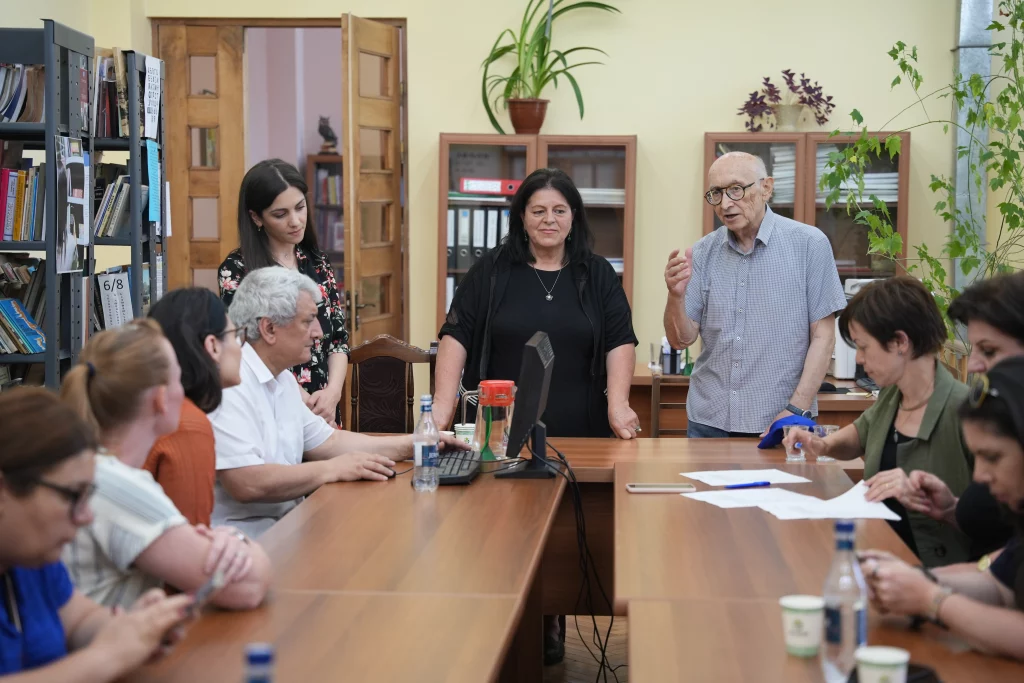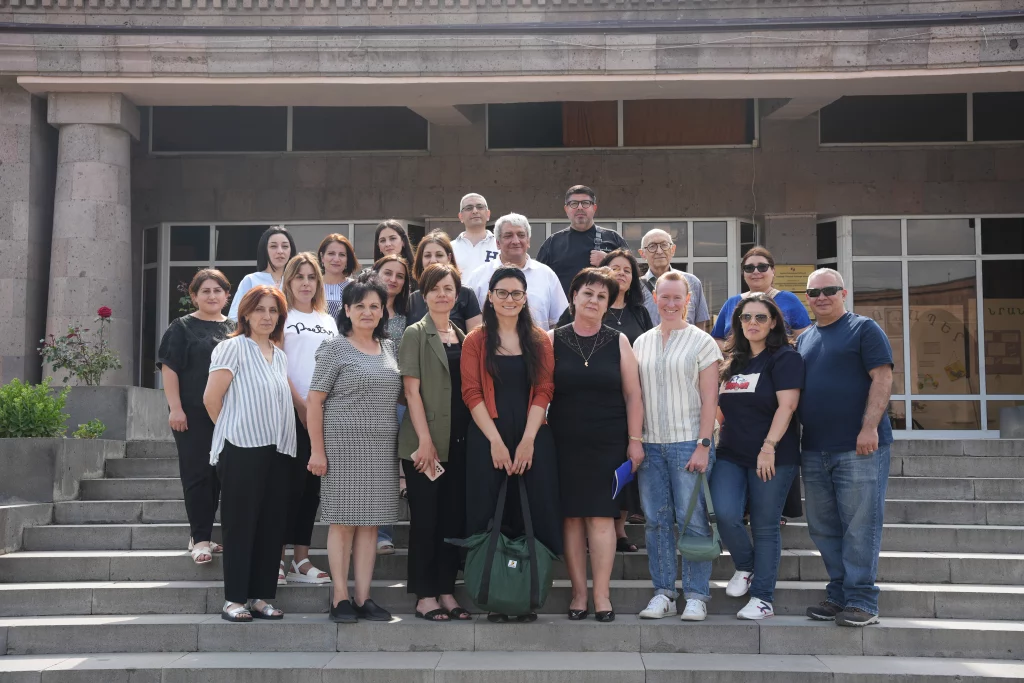Around the world, the digital divide poses a significant obstacle to economic opportunity, education, and social inclusion. In Armenia, this divide is most pronounced in rural communities and former centers of industrial manufacturing, where an estimated third of Armenians living in poverty reside. Lack of access to the Internet and computers prevents rural Armenians from advancing and fully participating in the modern digital economy and society.
Recognizing this disparity, the Internet Society Armenia Chapter embarked on a mission to bridge this gap through an innovative project funded by the Internet Society Foundation’s Beyond the Net Grant Program. This initiative aims to empower rural libraries, transforming them into digital access and learning hubs and providing local communities with the tools they need to participate fully in the digital world.

Turning Libraries into Digital Hubs
For the Internet Society Armenia Chapter, rural libraries represent ideal venues for promoting digital inclusion. These libraries already serve as community cultural centers, with established infrastructures, knowledgeable staff, and a commitment to serving the public.
As part of their previous projects, the chapter successfully introduced the concept of turning rural libraries into community Internet centers in the Lori region of the country—an area that was once a leading industrial center in the Soviet era. The initiative provided libraries with broadband Internet access, Internet terminals, WiFi access points, and videoconferencing equipment, which help residents connect online. In addition, the chapter developed an Armenian-Language based library management software that helped digitize library systems, enhancing their efficiency and accessibility.
The chapter employed a new grant to expand its successful initiative to two more regions: Kotayk and Syunik. The project also included plans to provide additional computers to the libraries in the Lori region.
Project Components: Connecting, Equipping, and Empowering
The Internet Society Armenia Chapter’s project consists of several key components designed to address the needs of rural libraries and the communities they serve:
- Broadband Internet Connection: The project partners with local Internet service providers to establish broadband connections in target libraries. This ensures that communities have reliable and high-speed access to the Internet.
- Computer Terminals: Libraries are equipped with computers, tablets, and e-book readers dedicated to public Internet access. In addition, necessary software and security measures are installed to ensure safe browsing and data protection.
- WiFi Connectivity: The project deploys WiFi routers in libraries to allow visitors to connect to the Internet using their own devices, such as smartphones or laptops. This helps broaden access to the Internet and allows more people to benefit from the available digital resources.
- Digitization and Library Management Software: To streamline library operations, the chapter provides computers with preinstalled library management software. This software digitizes catalog systems, making it easier for librarians and patrons to manage, search, and lend books. Staff are also trained to use the software effectively.
- Training Programs: Training workshops are a key part of the project, offering residents essential digital skills. These programs cover topics such as computer and Internet literacy, managing a digitized library, using social media, and practicing good cyber hygiene. Through these workshops, the chapter empowers individuals to navigate the digital world confidently.

Empowering Communities: The Impact of the Project
The project focuses not only on providing Internet access but also on empowering rural communities through digital literacy and engagement. By equipping libraries with broadband Internet and public computers, the Armenia Chapter is opening up new opportunities for residents who may not have their own devices or Internet access. The digitization of rural libraries ensures that these institutions remain relevant in the digital age, providing efficient services and easier access to books and other resources.
Furthermore, the training programs contribute to developing local capacity by teaching residents the skills necessary to engage in the digital economy fully. These skills can be applied to improve educational opportunities, seek employment, or pursue entrepreneurial activities that foster economic development and social inclusion.
As Mane Muzadyan, Head Librarian at the Vanadzor Library, eloquently stated, “In the 21st century, a man who has no Internet is deprived of everything.”

Site Visit: A Glimpse Into the Project’s Success
In 2024, representatives from the Internet Society Foundation visited Armenia to learn more about the project firsthand. Led by Igor Mkrtumyan, Armenian Internet pioneer and founder and President of the Internet Society Armenia Chapter, the team visited libraries in the Lori region, including those in Vanadzor and Spitak, which had benefited from the chapter’s initiatives.
During the visit, the team was introduced to the digital library management program developed by the chapter’s technical experts. According to Narine Derdzakyan, Vice-Chair of the Chapter’s Board, the program was created in response to a needs assessment and is designed to modernize the way libraries are organized while also providing access to a wealth of educational resources through the Internet.
Jenn Beard, Senior Program Officer at the Internet Society Foundation, was particularly impressed by the chapter’s deep connection to the community and their dedication to preserving Armenian culture through their work. “The work of the Chapter is clearly very highly respected in the community,” she said. “They care deeply about getting people online and helping them access the opportunities that the Internet brings.”
Beard also noted the chapter’s commitment to preserving Armenian literature and heritage, with the digital library management system playing a crucial role. By creating a digital catalog system, the Armenia Chapter ensures that Armenian books and resources are easily accessible and preserved for future generations.
The Internet Society Armenia Chapter’s project highlights the crucial role that digital access plays in fostering inclusion and development in underserved communities. As it continues to expand its work in Armenia, the chapter is helping to create a more connected and equitable world.
